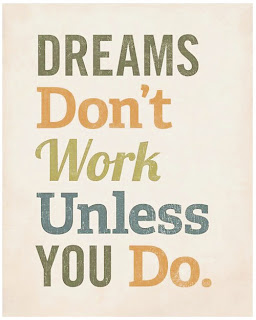Persuasion is a book written from Arlene Dickinson’s personal experiences, not a non-fiction books that refers to social science studies and established facts. It made for an interesting read (along the same lines as Kevin O’Leary’s The Cold Hard Truth). The core idea of the book is principled persuasion, a form of positive, relationship-building persuasion. Her main idea is that to persuade others you need to be honest, authentic and reciprocal. Persuading others, whether it is in a business pitch, a job interview or in a personal situation relies on building a connection that is based on trustworthy truth and mutual understanding of each person’s objectives.
 |
| Persuasion 2011 |
Persuasion was very well organized. Each section covers different aspects of persuasion, with chapters that are straightforward and that flow in a logical sequence. The subsections within each chapter do a great job of telling you just what you are about to learn. This makes this an easy read when the reading sessions are broken up.
Arlene does a great job of providing real life examples to support her claims, although some lacked details. When the personal stories got in-depth, it made the reading more interesting and enjoyable. The other reason I enjoyed her stories is because Arlene is a communicator. As the CEO of Venture Communications in Calgary and Toronto, I couldn't help but be in tune with the advice she provided. Her stories about client projects, agency blunders and marketing successes are very relatable to a PR student or professional.
Here are some parts of the book that really stood out to me:
“Some people think that to be good at persuasion you have to be an expert or have a big personality or be a smooth talker or know all the answers. But just the opposite is true: listening and picking up on subtext are at least as important to building emotional connections as anything you say.”After reading I have started making a conscious effort to listen more and it truly has been rewarding. You don’t truly know what listening is until you really do it.
“If I can’t understand what you’re talking about, I can’t trust you. Real expertise involves the ability to take complex subject and distill it to the point where it’s accessible to everyone."This is exactly why being a communicator is challenging, but rewarding. Our successes in communicating clearly make us influencers.
“Being yourself doesn’t mean being sweet and nice, by the way. It just means not hiding who you really are.”This one jumped out at me because it is such a common misperception. People think that people who are honest and straightforward are not as real as those who act nice. Think twice.
“Virtually all entrepreneurs share one really valuable attribute: they see potential all around them.”This is why I think most communicators are entrepreneurs. We see potential and we build strategy to make the most of it.
“To move forward, you need to persuade yourself to act, and to arm yourself against the consequences of your decision by deciding beforehand that it’s all right to change your mind down the road, and also all right to make a mistake.”This is my new mantra. Persuade yourself to move forward and you can take on the world.
“Confidence is a quiet self-belief, not a loud cry for attention."For communicators I think this is important to keep in mind.
“If authenticity is about knowing yourself, honesty is about publicly demonstrating and defending your beliefs and principles."This last one is important for students and young professionals going out in the workforce. I strongly believe in standing by your own principles even if you don’t feel fully confident. Don’t be someone else, be yourself and make a mark.
 |
| The dragons from CBC's Dragon's Den |
I can’t say I am an ultimate persuader now, but hopefully I have persuaded you to check out this book. One thing I can say is that this book have me a better understanding of how to build strong relationships. And hey, isn’t that what PR is all about?
Do you think you will read Persuasion? If you have let me know what you think of it!
P.S. I love PR

